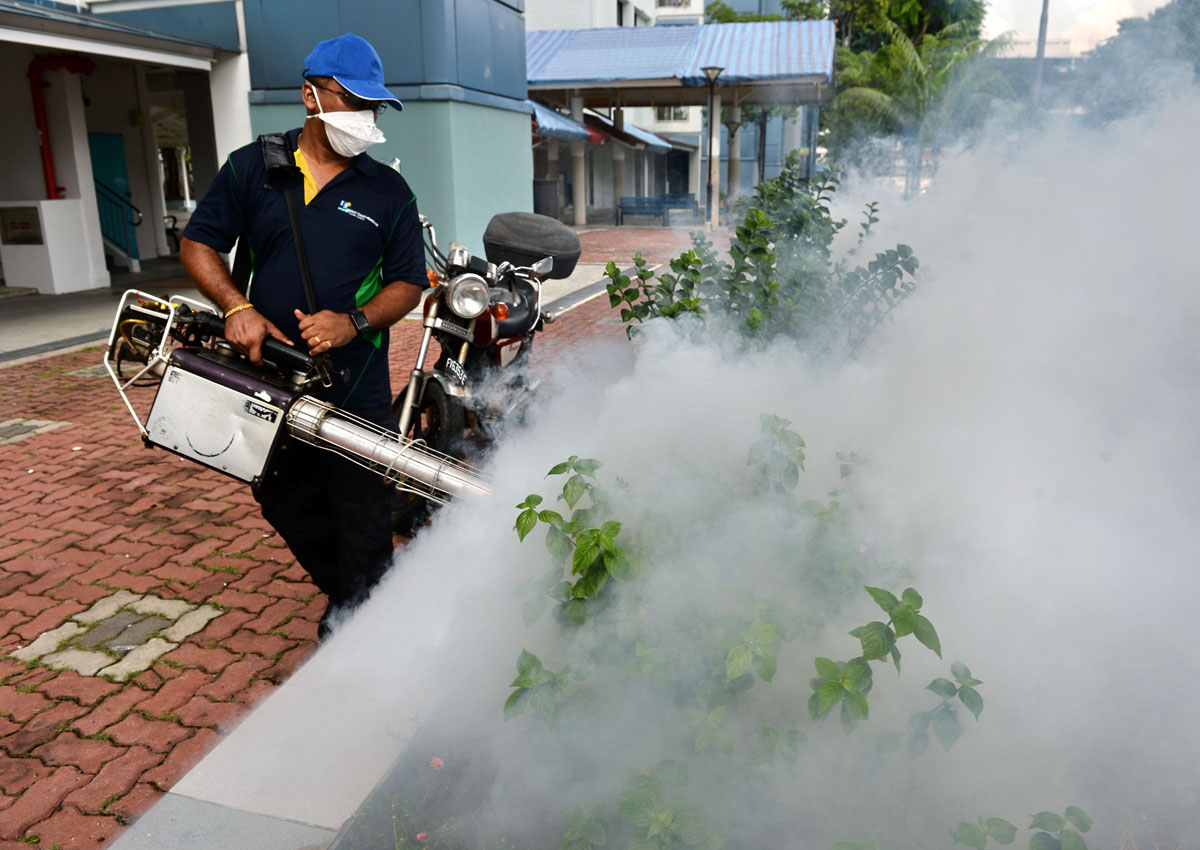Three-year-old Jarrell Tan loves spending weekends with his siblings at the void deck under his home in Bedok North Avenue 3, where they take turns to ride their bicycles and scooters.
But now, he will have to be happy playing at home.
His father, IT engineer Tan Kok Soon, 34, is taking steps to protect his children from the Zika virus that has arrived in his neighbourhood – and that includes keeping them at home.
The Ministry of Health said on Wednesday that Bedok North Avenue 3 could be a Zika cluster.
Parents like Mr Tan are not taking any chances, even though the virus is not known to have a serious impact on young children. Mr Tan is ensuring his three children have repellent on before they go to childcare in the mornings.
“My wife and I have also closed all the windows and turned on the air-conditioning in our home to keep the mosquitoes out,” he said.
Housewife Ho Hwee Chin, 63, is also doing the same, having banned her four grandchildren – aged one to seven – from going to the playground. She said: “I don’t want to leave it to fate.”
Neither do the authorities and the town councils. Efforts to prevent the spread of the Zika virus were in full swing yesterday with pest control officers fogging the vicinity and oiling drains to prevent mosquito breeding.
Aljunied GRC MP Faisal Manap, who takes care of Kaki Bukit ward which part of the affected cluster of 43 blocks comes under, spoke to residents and visited homes yesterday. House visits were also conducted by Fengshan MP Cheryl Chan. Six of the blocks in the cluster come under her single-member constituency.
At East Coast GRC’s Kampong Chai Chee ward, where the remaining blocks are, more than 30 grassroots volunteers went door to door at 12 blocks of flats, passing out fliers to residents containing information on the virus and how to prevent its spread. The new cluster in the eastern part of Singapore is a major residential hub near the Bedok MRT station.
Yesterday, residents went about their usual activities. Volunteers are keeping an eye out for pregnant residents and have been told to note down their particulars so they can offer help if needed.
Zika is associated with microcephaly in unborn babies, a defect that results in abnormally small heads. The risk is higher during the first trimester and early part of the second trimester of pregnancy.
Madam Noor Diah Ahmad Junsi, 40, who is seven months pregnant, has been spraying insect repellent around her house, especially before she sleeps at night.
Although she is considered to be at a lower risk since she is in her final trimester, the law firm secretary is still worried.
“There is no guarantee that my baby will not get affected,” she said.

This article was first published on September 2, 2016.
Get a copy of The Straits Times or go to straitstimes.com for more stories.














































